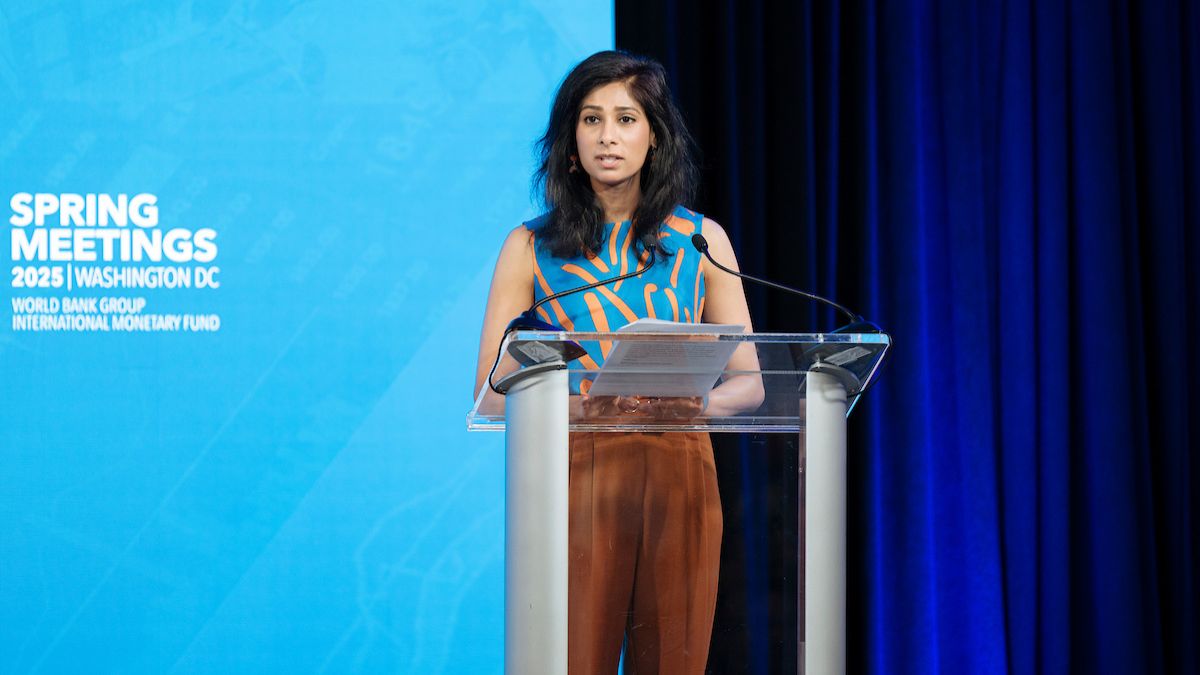Gita Gopinath Returns to Harvard University
Indian-American economist Gita Gopinath, who has been serving as the first deputy managing director at the International Monetary Fund (IMF), has announced her return to Harvard University. She will rejoin the Harvard Economics Department on September 1 as the inaugural Gregory and Ania Coffey Professor of Economics. In a post on X, Gopinath shared that after nearly seven years at the IMF, she is returning to her academic roots.
Gopinath, who was the first female chief economist in IMF history, expressed deep gratitude for her time at the organization. She described her tenure at the IMF as a once-in-a-lifetime opportunity to serve during a period marked by significant global challenges. “I now return to my roots in academia, where I look forward to continuing to push the research frontier in international finance and macroeconomics to address global challenges, and to training the next generation of economists,” she said.
Who is Gita Gopinath?
Born in Kolkata, Gopinath joined the IMF in January 2019 as chief economist and was later promoted to the position of first deputy managing director in January 2022. Before her role at the IMF, she served as the John Zwaanstra Professor of International Studies and of Economics at Harvard University’s economics department from 2005 to 2022. Prior to that, she was an assistant professor of economics at the University of Chicago’s Booth School of Business from 2001 to 2005. Gopinath completed her early education at Delhi University.
IMF Managing Director Kristalina Georgieva praised Gopinath as an outstanding colleague, highlighting her exceptional intellectual leadership, dedication to the mission of the Fund, and genuine care for the professional development and wellbeing of staff. Georgieva emphasized that Gopinath’s contributions to the IMF were invaluable, especially during a time of immense global challenges.
Gopinath’s Role at the IMF
Georgieva noted that Gopinath came to the IMF as a highly respected academic in the fields of macroeconomics and international finance, and her reputation only grew during her tenure. She provided analytical rigor paired with practical policy advice to member countries during a challenging period that included the pandemic, wars, the cost-of-living crisis, and major shifts in the global trading system.
Gopinath played a key role in steering the IMF’s analytical and policy work, focusing on fiscal and monetary policy, debt, and international trade. As a senior leader, she represented the IMF in major international forums such as the G-7 and G-20. Her leadership ensured that the World Economic Outlook remained the leading report on the global economy, particularly during the unprecedented challenges posed by the COVID-19 pandemic.
Contributions to Global Health and Policy
One of Gopinath’s notable contributions was co-authoring the ‘Pandemic Plan,’ which outlined strategies to end the COVID-19 crisis. This initiative was widely recognized for addressing a critical global gap by setting feasible targets for vaccinating the world population. Georgieva acknowledged the importance of this contribution, emphasizing its impact on global health and economic stability.
Gopinath’s return to Harvard marks a significant step in her career, allowing her to continue her work in academia while contributing to the training of future economists. Her journey from a student in India to a leading figure in global economics exemplifies the power of education and perseverance. With her extensive experience and deep understanding of global economic issues, Gopinath is poised to make meaningful contributions to both academia and the broader field of economics.







